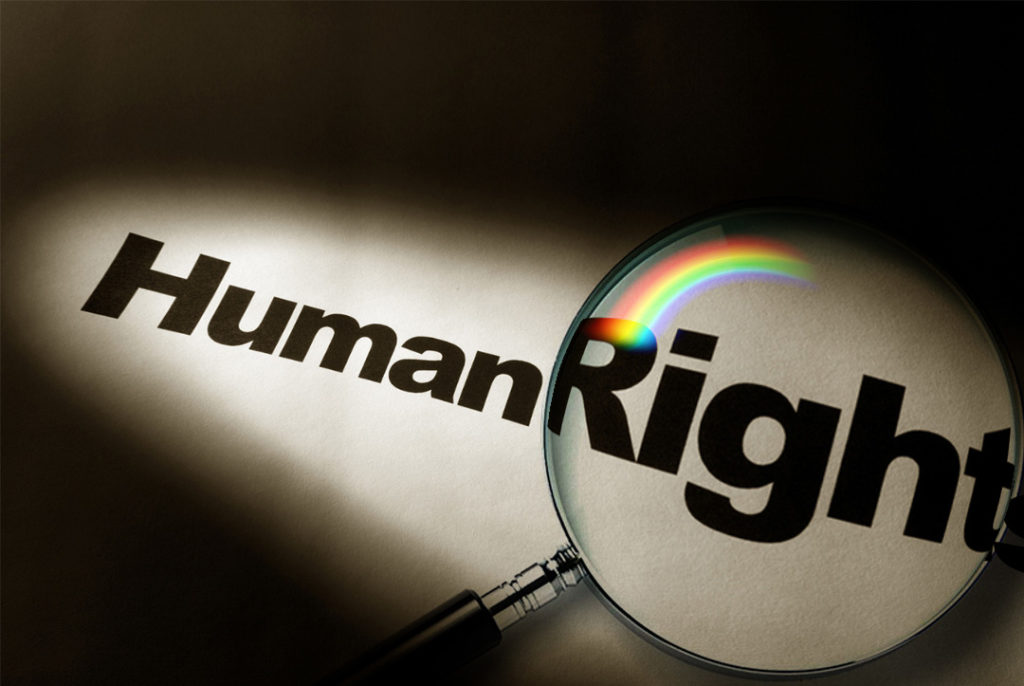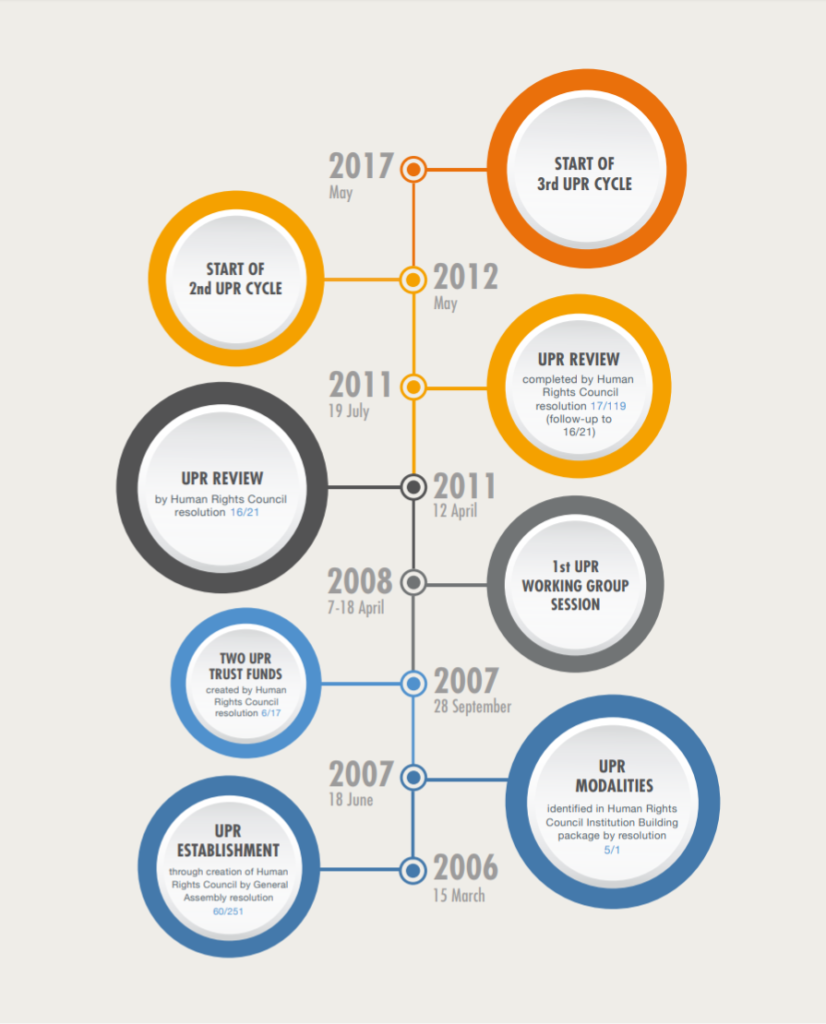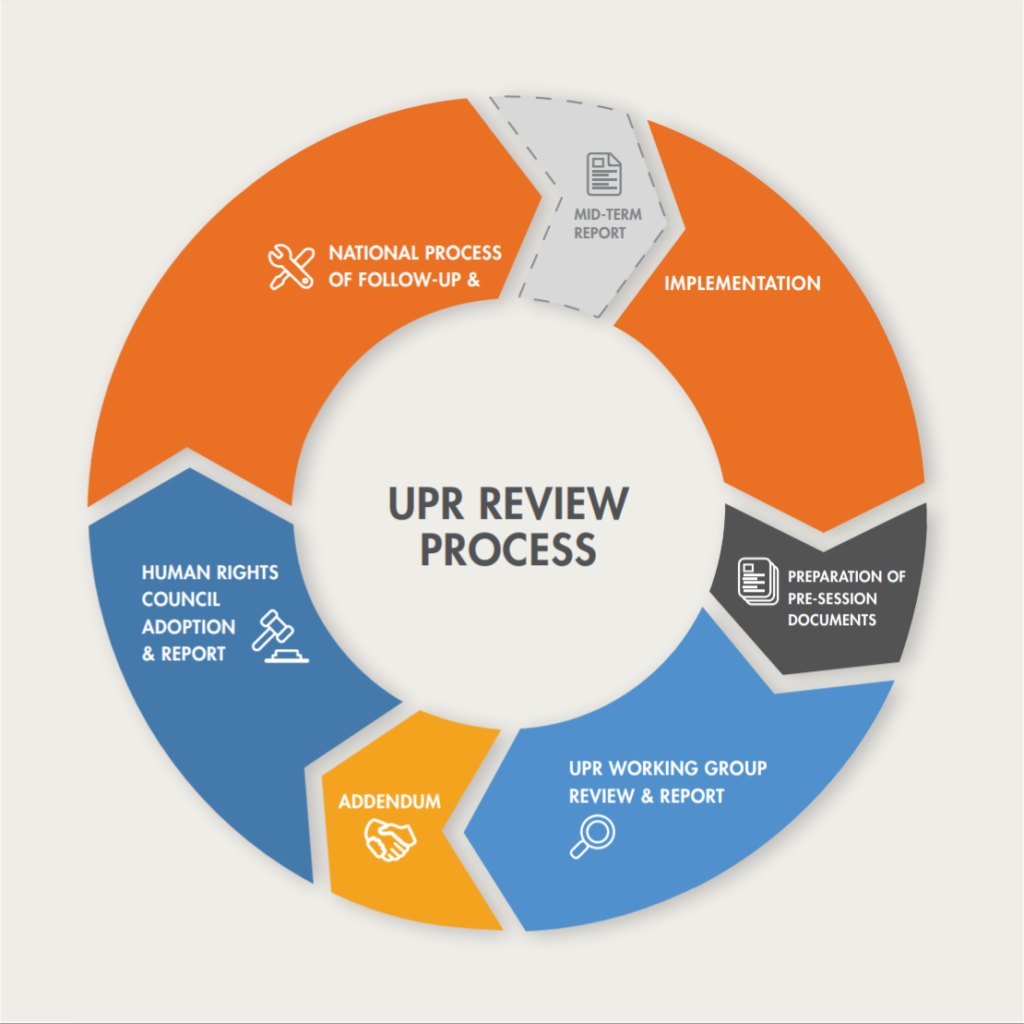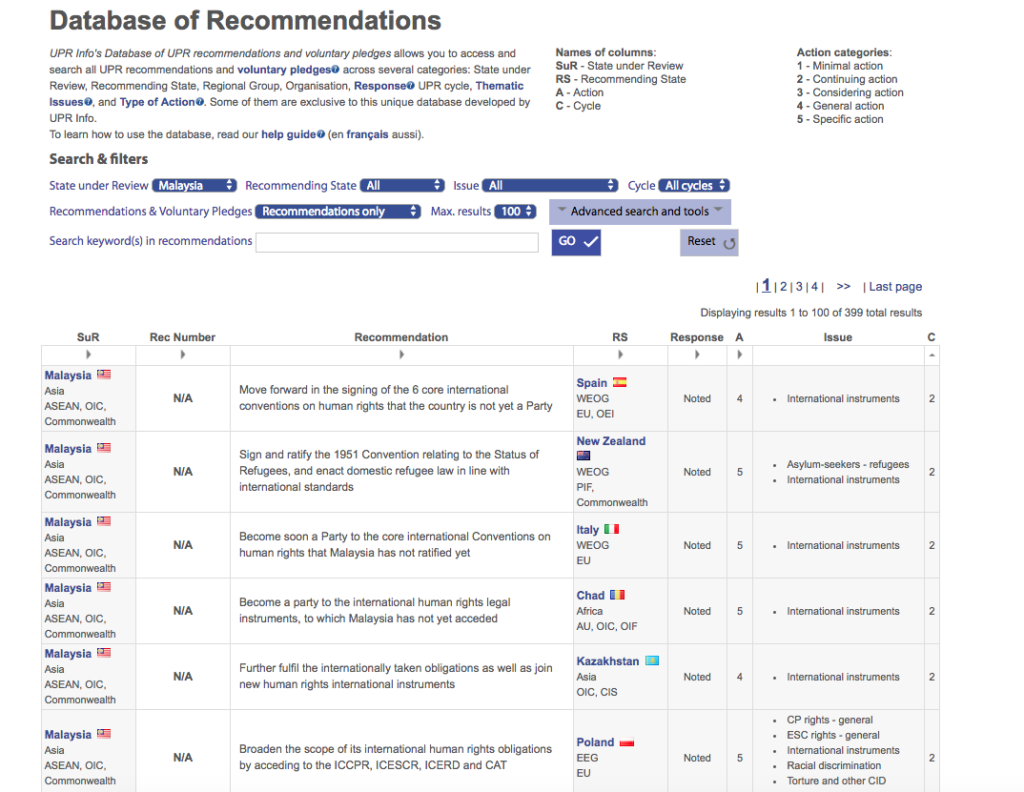UPR: When Malaysia’s human rights record go under a magnifying glass
by JUSTICE FOR SISTERS.

This November 2018, Malaysia’s human rights record is going to be put under a magnifying glass for the whole world to see. Yes, it is time for our 3rd Universal Periodic Review (UPR) at the United Nations Human Rights Council in Geneva. In the next few months, you are likely to come across the terms ‘UPR’ and ‘COMANGO’ in the media, often in painted in negative light. But what is COMANGO and how does something so cute-sounding make so many powerful enemies? Let us explain. (Warning: this resource can be a little geeky and bureaucratic, even though we try to simplify it a little, so hang in there.)
The UPR, which stands for the Universal Periodic Review is a process of the United Nations Human Rights Council (UNHRC) under which human rights record of all 193 Member States are reviewed every 5 years. Remember, they are Member States. That means all of 193 countries who are members of the UN and agreed to be a part of this process to review each other’s human rights, including Malaysia. This was one way we got together and imagined a better world for all.
The UPR was established by the Human Rights Council in 2006 to
- To improve the human rights situation in every country
- To support and expand the protection of human rights on the ground
- To provide technical assistance to States and strengthen their capacity, in consultation with, and with the consent of, the State concerned to tackle human rights challenges effectively
- To share best practices in the field of human rights among States and other stakeholders

Member states or countries are reviewed based on:
- National report by the State
- Reports by independent human right experts and groups i.e. Special Procedures, human rights treaty bodies, and other UN entities
- Information by stakeholders including national human rights institutions & NGOs
Each country’s government will submit a report of their own human rights record. If you know what governments are like you will know they are very likely to exaggerate their own success and underreport their own failures. Therefore, the UPR process also receives reports from the NHRI and civil society organizations. In Malaysia, the civil society come together under The Coalition of Malaysian NGOs in the UPR Process, which gives us the fabulous name of COMANGO.
COMANGO is made up of 54 civil society organisations in Malaysia. In all three cycles, COMANGO has coordinated and submitted reports on human rights violations that continue to persist in Malaysia. As a human rights coalition, COMANGO upholds principles of human rights and is inclusive of all human rights issues. This means LGBTIQ organisations are welcome as part of the Malaysian human rights family. This makes some other less inclusive groups not so happy about our inclusion. Aside from LGBTIQ issues, issues on freedom of religion, Muslim women’s rights and others are also contested. The inclusion has also resulted in severe reprisals against COMANGO, human rights groups and human rights defenders. In January 2014, COMANGO has been accused of being ‘un-Islamic’ and was even deemed illegal by the Home Ministry in January 2014.

Malaysia’s reports
Submission by the government
cycle 1 | cycle 2 | cycle 3
Submission by the NHRI or SUHAKAM
cycle 1 | cycle 2 | cycle 3
Submission by CSOs
cycle 1 | cycle 2 | cycle 3
Summary of other stakeholders information
cycle 1 | cycle 2 | cycle 3
Compilation of UN information
cycle 1 |cycle 2 | cycle 3
The UPR working group
The UPR working group, comprising all 47 Member States of the UNHRC, chaired by the Council President, will review the reports and put together a report. Based on the reports, each country will be reviewed by other countries.
Malaysia Review – 17th Session of Universal Periodic Review
After the review, there will be an adoption process , where the country under review will adopt all the recommendations received. It is entirely up to the country under review to accept, note or reject the recommendations. All the recommendations received are documented in a document by UNHRC.
Working group outcome report on Malaysia’s UPR cycle 1 |cycle 2 | cycle 3
Recommendations to Malaysia
The recommendations by other countries to a country under review include a various areas from education, development, rights of indigenous people, death penalty and more. As the UPR is a state led review process, countries under review can accept, reject or note the received recommendations. Accepted recommendations are expected to be implemented within 5 years or between each cycle.
Recommendations received by Malaysia in each UPR cycle
| Cycle | Total received | Accepted | Rejected | Noted |
| 1 (Feb 2008) | 103 | 62 | 22 | 19 |
| 2 (Oct 2013) | 235 | 150 |
|
85 |
| 3 (Nov 2018) |
LGBTIQ or sexual orientation and gender identity related recommendations
In both UPR cycles, Malaysia received recommendations on sexual orientation and gender identity. In cycle 1, malaysia only received 2 SOGI-related recommendations, one on decriminalising homoseuxality and one on respecting and depthaologizaing homosexuality. In the 2nd cycle, however, Malaysia received 7 recommendations and 3 advance questions. All recommendations were noted.
| Recommendation | UPR cycle 1 | UPR cycle 2 |
| Decriminalize sexual realtions between consenting adults | 2 | 5 |
| Anti discrimination | 3 | |
LGBTIQ related recommendations in cycle 1
| No. of recommendation | Recommendation | Country | Status |
| 76(f) | Elimination from the Penal Code of standards which allow for discrimination against people on the grounds of their sexual orientation | Chile | Noted |
| 88(a) | To respect the human rights of all individuals, including homosexuals, by de-penalizing homosexuality | France | Noted |
LGBTIQ related recommendations in cycle 2
| No. of recommendation | Recommendation | Country | Status |
| 146.98 | Take legislative and practical steps to guarantee that LGBTI persons can enjoy all human rights without discrimination | Germany | Noted |
| 146.99 | Introduce legislation that will decriminalize sexual relations between consenting adults of the same sex | Crotia | Noted |
| 146.100 | Decriminalize homosexuality and respect the fundamental rights of LGBT persons | France | Noted |
| 146.101 | Take the necessary measures to eradicate the discrimination based on sexual orientation | Argentina | Noted |
| 146.102 | Delete those provisions that could favour discriminatory practices against persons based on their sexual orientation and gender identity | Chile | Noted |
| 146.103 | Repeal sections of the Malaysian Penal Code that criminalize consensual same-sex conduct between adults | Netherlands | Noted |
| 146.104 | Enact legislation prohibiting violence based on sexual orientation, and repeal laws that directly or indirectly criminalize consensual same-sex sexual activities | Canada | Noted |
Advance questions
| Country | Advance question |
| Netherlands | Will the government be supporting the LGBT community to become a fully accepted part of a unified 1Malaysia vision? |
| UK | What steps will the Government take to address Suhakam concern about “ill-treatment, discrimination, bullying, vilification, humiliation and intimidation of sexual minority groups”? |
| US | Human Rights of LGBT Persons: In its national report, the Government of Malaysia highlights its commitment to taking the needs of the most vulnerable into account when protecting human rights. Members of the LGBT community are vulnerable to violence and discrimination. Certain actions by the Malaysian government have increased the LGBT community’s vulnerability, including sponsoring a play that appears intended to belittle the LGBT community, hosting seminars on the dangers of the LGBT lifestyle, and sending boys judged to exhibit effeminate tendencies to boot camp to be “rehabilitated.” What specific measures will the Malaysian government take to protect members of the LGBT community from violence and discrimination? |
The status of the implementation of the accepted and noted recommendations has to be reported in the the following cycle or in the mid review, which is an optional process.
What happens if a state is not cooperating with the UPR?
The UNHRC will decide on the measure in case of persistent non-co-operation by a State with the UPR. For example, by requesting the President of the Council to urge the State under review to resume cooperation with the UPR mechanism. The UNHCR may also refer the case to the United Nations General Assembly (UNGA).

You could also find all recommendations received by Malaysia as well as recommendations made by Malaysia to other countries in the UPR cycles at the UPR-info.
Recommendations not directly on LGBTIQ on SOGI but in relation
| No. of recommendation | Recommendation | Country | Status |
| 146.94 | Launch a comprehensive national policy on gender equality and non-discrimination | Columbia | Noted |
| 146.95 | Continue to promote gender equality and the empowerment of women | Singapore | Accepted |
| 146.96 | Continue with the measures aimed at eradicating gender discrimination, particularly in relation to migrant women | Argentina | Noted |
| 146.192 | Implement a gender perspective in education at all levels, especially by providing gender-trainings for teachers | Timor
-Leste |
Accepted |
| 146.193 | Implement a gender perspective in education at all levels, including teacher training, as well as establish a policy and appropriate measures for including children of all backgrounds in the national education system | Bulgaria | Accepted |
| 146.194 | Take necessary measures to implement a gender perspective in education at all levels, including by training teachers | State of
Palestine |
Accepted |
| 146.195 | Take the necessary measures to take into account gender aspects at all levels of the educational system, including teachers’ training | Kyrgyzstan | Accepted |
| 146.196 | Share its best practices in education and promote the gender perspective at all levels in education and teacher trainings with appropriate measures | Vietnam | Accepted |
Since the review include reports by non-governmental organisations, we as civil citizens can also play a part in the UPR process.

